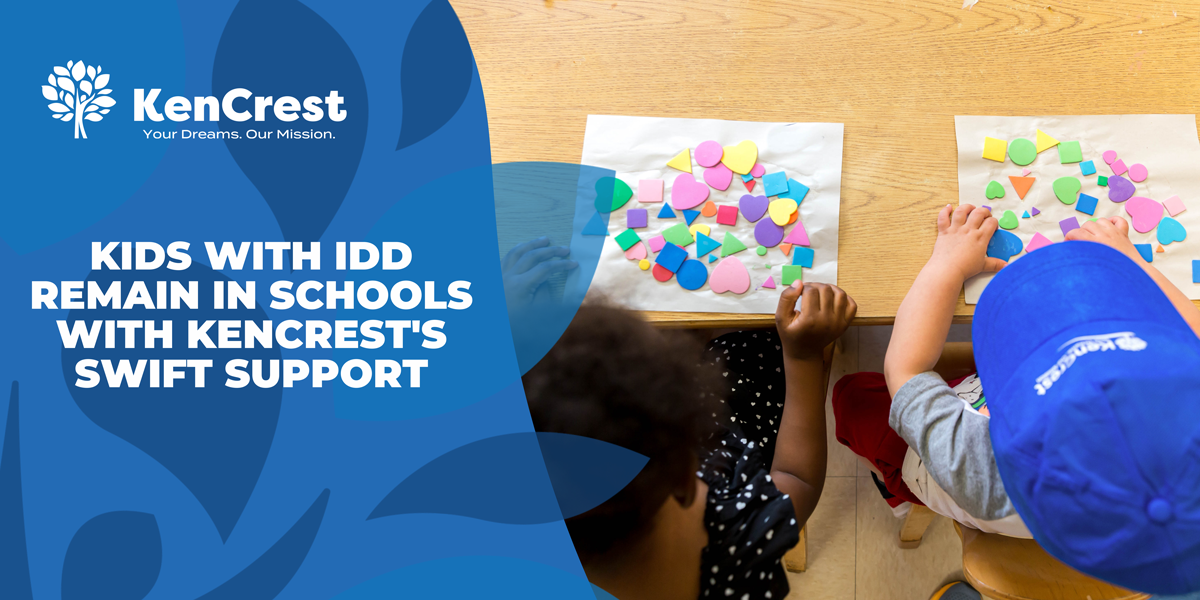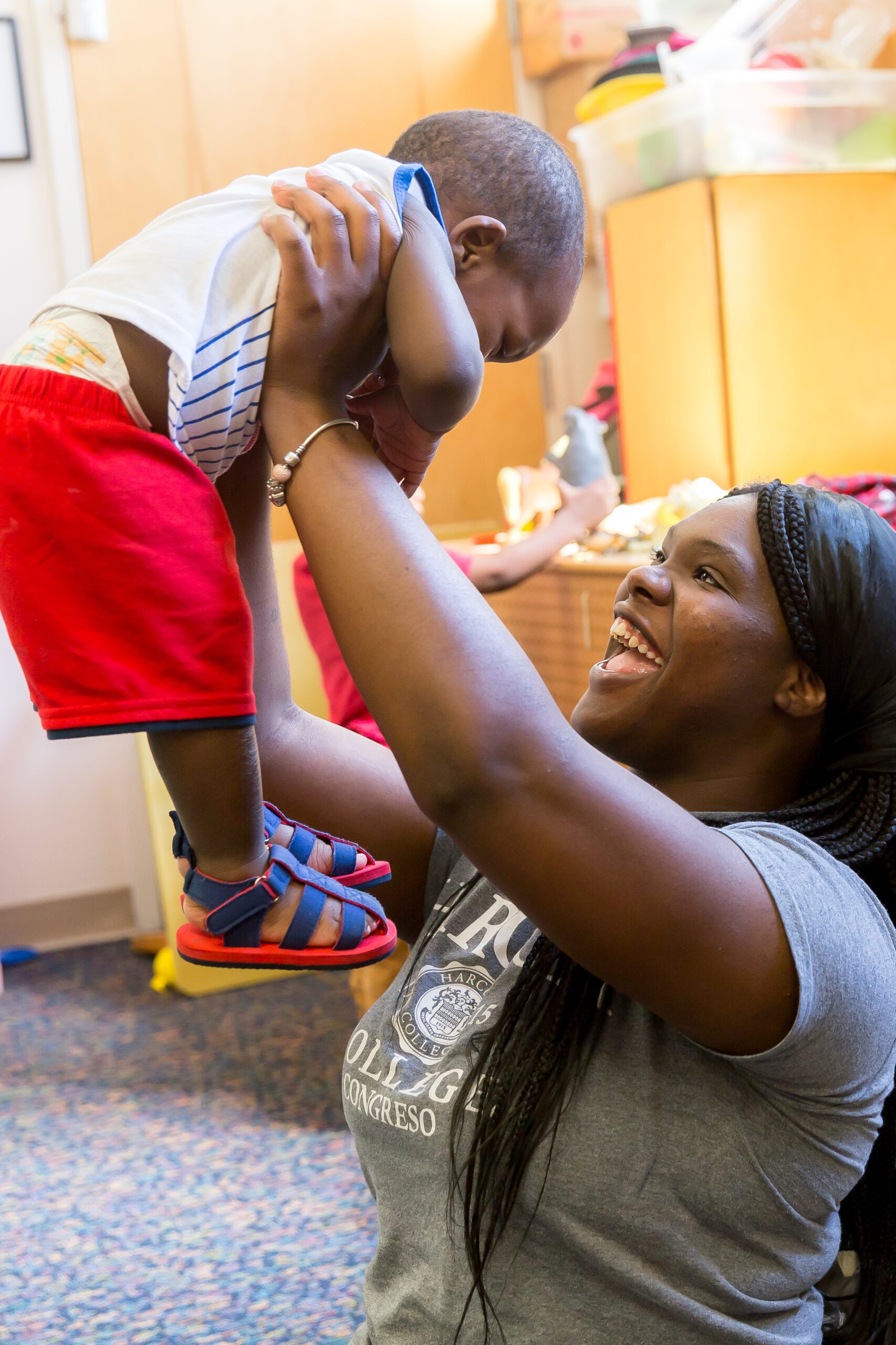Kids With IDD Remain in Schools With KenCrest’s Swift Support

KenCrest’s Child Care SWIFT Support program helps hundreds of children with intellectual or developmental disabilities remain in schools.
By Sydney Kerelo
In 2008, St. Teresa of Calcutta school opened its doors with one goal: to provide a faith-based, quality education for children before they enter kindergarten. However, seven years ago, in 2017, the Office of Child Development and Early Learning (OCDEL) announced a bulletin to the Early Learning Community that all children under the age of five years old, including children with developmental disabilities (IDD) in Pennsylvania to be included in their community's early learning centers (ELCs) and preschool programs as a way of authentic inclusion. This posed a challenge for St. Teresa of Calcutta’s director and teachers.
The teachers at St. Teresa of Calcutta School identified the need for additional knowledge and resources to support children with developmental delays in their classrooms successfully. Without the appropriate support, many children with delays were on the verge of expulsion due to their challenging behaviors.
“We have two kids currently in our program that were on the verge of being expelled because they were being physical and causing a lot of issues in the classroom,” says Tara Melville, St. Teresa’s Childcare Director.
Melville recalls moments when students would throw tantrums during lessons, hit, push, or bite others, and disengage from the classroom entirely. Even with three teachers present in one classroom, they still struggled to engage with the child. It became a vicious cycle, hindering other students and frustrating teachers.
“Suspension/expulsion of a child from an Early Learning Center has a negative effect on the child and family. Children having positive experiences in Early Education lays the foundation for positive experiences in future educational environments.”
Executive Director of Early Intervention and Clinical Programs, Roseann Adamo
“We knew it wasn’t always the child’s fault, that we could also not provide the right tools to help them,” says Melville. “I've been a director and have been working with children for over 30 years, and we often struggle with what to do when our teachers don’t know how to help students with disabilities. But then I found out about KenCrest’s Child Care SWIFT Support program, and within 48 hours, an instructor could come out here and help us.”
KenCrest’s Child Care SWIFT Support program is a new business idea started in 2020 by Roseann Adamo, the Executive Director of the Early Intervention and Clinical Programs, to support children on the verge of expulsion from an Early Learning Center. KenCrest Special Instructors work collaboratively with teachers in the classroom to identify strategies that will help the child and teacher.


Within 48 hours of the referral call to the SWIFT Support Program, KenCrest Special Instructor Adrienne arrived at St. Teresa of Calcutta Early Learning Center. She worked with the teachers to identify why the behavior was occurring, and together, they developed strategies to decrease those behaviors through coaching, collaboration, and demonstrations, which led to a positive working relationship between Adrienne and the teacher.
Adrienne explained why the child reacted to certain classroom activities and suggested materials to add to the classroom routines. She discussed with the teachers how that was the child’s way of communicating in the environment and emphasized the purpose of each behavior. Since each child learns differently in various settings, teachers must adapt their teaching methods to accommodate each child's needs. Therefore, being able to model and provide real-life scenarios in the classroom was an invaluable support to St. Teresa.
According to Melville, Adrienne and the teacher created a visual schedule that all the children in the classroom utilized. She demonstrated and coached the teachers to implement similar strategies and activities that encouraged all children to participate and be successful. Adrienne shared abundant resources that the teachers could access at any time.
“Suspension/expulsion of a child from an Early Learning Center has a negative effect on the child and family,” says Adamo. “Children having positive experiences in Early Education lays the foundation for positive experiences in future educational environments.”
The Intellectual Developmental Disability (IDD) Deputy Administrator in Delaware County, Aleasha Redden-Revell, even partnered with KenCrest to focus on inclusion through the Childcare SWIFT Support program. She advocated for state funding for the SWIFT program, and in 2022, Delaware County’s Office of Behavioral Health began funding the program. Delaware County is the first to fund the KenCrest Childcare SWIFT Support Program.
